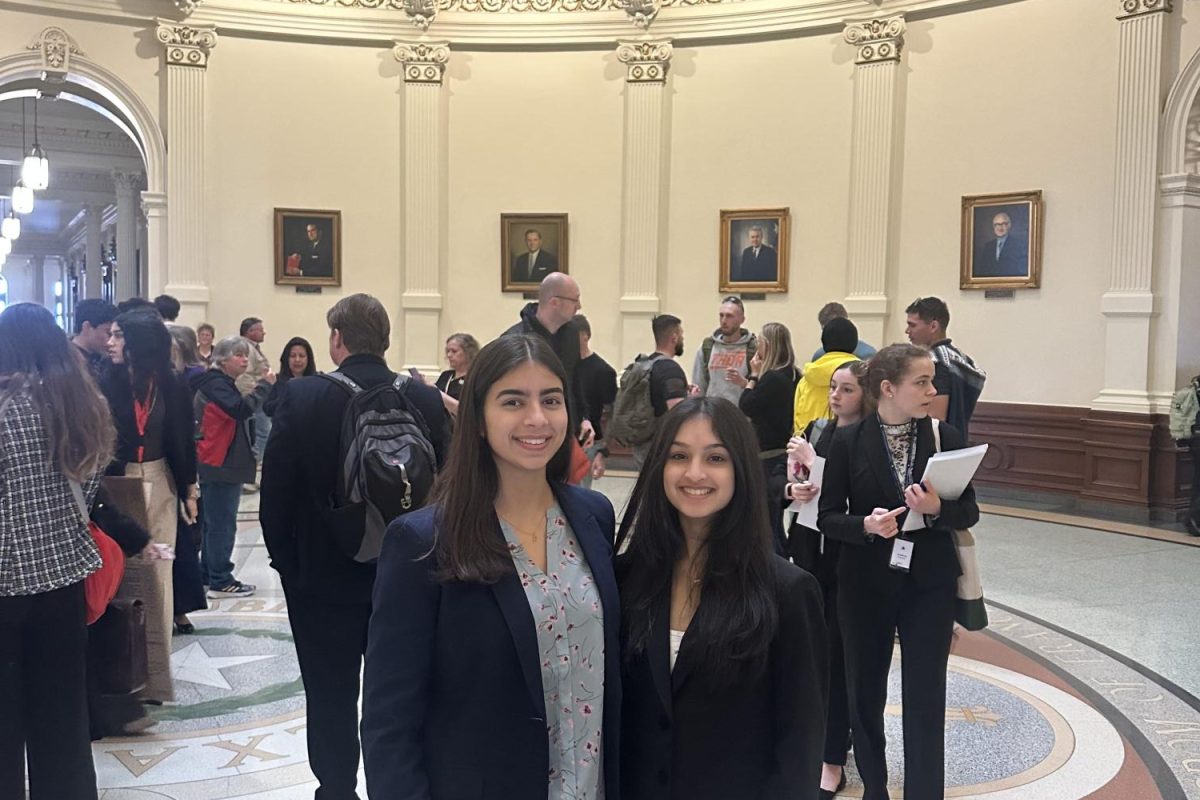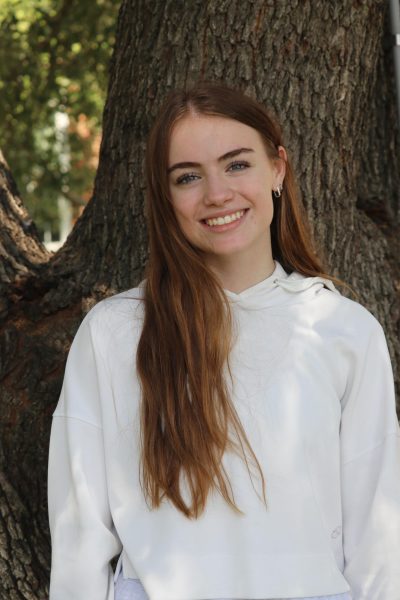Instead of spending the weekend like typical teenagers, sophomores Romi Segal and Amelia Ghosh spent their weekend in Austin arguing whether a man deserves life in prison without parole.
As a part of the appellate court team, the two future lawyers signed up to argue about the precedent of cases rather than if the fictional defendant is guilty or not.
“The competition is modeled after an appellate court setting, which means we’re not arguing about whether someone is guilty or innocent,” Segal said. “Instead, we’re focusing on legal principles—whether the trial court made the right decision, whether the law was applied correctly, and how precedent should be interpreted.”
This particular case that the duo argued involved a fictional teenager who was convicted to life without parole as a minor and wasn’t given his Miranda Rights. The appellant, or the man who was convicted, believed he deserved parole.
“The main issues on appeal were whether sentencing him to life without parole was constitutional and whether certain key statements made by the prosecution should have been disclosed earlier,” Ghosh said.
The pair can either be the appellant team, the party who is dissatisfied with the outcome of a lower court’s decision, or the appellee, who is defending the lower court’s decision against the appeal. Teams don’t find out what side they’ve been assigned until right before the round, so they have to create arguments for both sides.
“Before the round starts we find out what side we’re on,” Ghosh said. “Then, we present our arguments, with time divided between the two speakers. Each person gets 30 minutes to cover their issue, and we have to manage our time carefully and talk the entire time.”
In order to compete at the state competition in Austin, Ghosh and Segal first had to place high enough at districts in a series of rounds exactly like the ones at state. In each courtroom, there is a judge who decides whether the appellant is right or not, and an evaluator who grades the team’s performance.
“Before competitions, we practiced five times a week, which really paid off at districts. We got second place,” Ghosh said.
The team usually practices alone, and though they have sponsors, they usually rely on each other for help.
“I don’t help them,” appellate court sponsor Temple Truax said. “They do it all themselves. They read the case and determine their strategy all by themselves.”
After two days of arguing in the courtroom, Segal and Ghosh discovered that they made 6th in the state as second year members of the Appellate Court sections at Highland Park.
“It was exhilarating to find out we won,” Segal said. “I was nervous at first, especially on the first day, but once I got into it, I felt more confident. And when we placed in the competition, it was an incredible feeling—like all the hard work had paid off.”
Though all appellate court teams compete in pairs, the duo believes it’s teamwork that leads them to placing so high, and what makes them want to continue to compete.
“The collaboration is a huge advantage, to have someone who can challenge your ideas and help you refine your arguments. There were times when I thought I had a solid point, and my partner, Romi, would poke holes in it, helping me strengthen it,” Ghosh said.
The two hope to continue to be a part of the team throughout high school and eventually make it to nationals, which is held in Washington D.C.
“My coaches always pushed us to be better but also reminded us that it’s okay to make mistakes,” Segal said. “My teammates were like a second family—we spent so much time practicing together, and we really had to rely on each other. Even when we lost a round, we learned from it and kept improving.”




